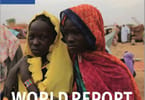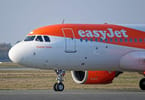With the very best of intentions, the Caribbean Tourism Organization (CTO) recently organized a conference in St. Thomas, US Virgin Islands (USVI), to explore the idea of a unified vision for the region. The program was expertly guided and directed by Hugh Riley, Johnson John Rose and Bevan Springer. Caribbean elected representatives, c-suite executives, communication gurus, administrators and media explored the ways and means to successfully reach a target of 30 million visitors to the Caribbean region while simultaneously maintaining a sustainable environment that would ensure continuous tourism over the decades.
The Caribbean Tourism Organization may be considered the link that keeps the 30+ Caribbean member countries connected through ongoing conferences, meetings, research and publications. Sometimes it is difficult to determine if there is a unified objective among the members (i.e., to sustain and increase tourism to the region) or the 30+ member countries are cobbled together to give the impression of a “union” when, in reality, it is a disparate group that happens to come together for conferences and dinners.
An Economic Imperative
Regardless of the locale, elected Caribbean officials are reluctant to share their personal observations; candor is not part of the pledge articulated during swearing-in ceremonies. However, the CTO manages to keep members engaged in a dialogue; congratulating, cajoling, and at times confronting country’s leaders – with the specific purpose of moving them out of the 20th century; encouraging them to not only accept but to embrace the realities of the 21st century travel and tourism industry.
Ever mindful of its diplomatic role, the CTO attempts to keep the idea of “regional” interdependence at the forefront of its activities. One of its basic aims is to “focus the attention of the public upon the Caribbean as one of the world’s outstanding tourist destination.”
It is relatively easy to offer homilies, it is very difficult to get 30+ countries to sing the same song, at the same time and it is laudable that the CTO keeps to its mission.
Truth Be Told
The CTO lined up a group of international speakers who presented messages that were starkly realistic and exigent. Setting the tone for the event was Alex Zozaya, the Founder and CEO of Apple Leisure Group. A unique hospitality organization in the US travel industry, the Group includes Apple Vacations, Travel Impressions and CheapCaribbean and outsells all other organizations in leisure travel to Mexico, the Dominican Republic and Jamaica, worldwide. Through AMR Resorts (hotels and marketing services that include Zoetry, Secrets, Breathless, Dreams, Now and Sunscape), Amstar (DMC for Mexico and the Dominican Republic) and Unlimited Vacation Club travel program, the company has survived and succeeded where many have lost their way. One of every 10 visitors to the Caribbean have booked their holiday through Apple.
Zozaya knows the Caribbean better than most and he encouraged conference participants to look at new distribution channels to reach target markets and to recognize and accept the new wants/needs of the traveling consumer. He also suggested a sound fiscal review of the costs of doing business in the region, citing the fact that energy costs in the Caribbean were higher than in Hawaii.
Being Pretty in Not Good Enough
In order to preserve and enhance the holiday experience for visitors, Zozaya encouraged all destinations to invest in education and training for personnel, plan for product sustainability, and aggressively preserve their unique cultures.
He reminded everyone that the traveler visits a destination in search of an authentic experience – not a commodity. When a locale or hotel is selected there should be product differentiation that goes beyond price. He encouraged everyone to look toward innovation as visitors are not interested in what is old and out-of-date.
Zozaya also highlighted that fact that not every visitor is interested in seeking sun and sand. It is up to the destination to either create new leisure opportunities or to upgrade existing cultural icons in order to meet the traveler’s current and changing wants and needs. He also advised attendees that all inclusive properties are no longer “new” and visitors should be encouraged and motivated to leave the hotel and see what the country has to offer. Promoting local opportunities (i.e., buildings, cuisine, beverages) and adventure activities outside the confines of the hotel often results in longer holidays, increasing hotel revenue.
Heads Out of the Sand
Data shows that crime exists for hotel visitors as well as for those who visit the Caribbean destinations on their yachts. Rather than ignore the challenges, Zozaya encouraged the elected ministers to address safety and security issues and to find opportunities to reduce and/or eliminate these offences. He also recommended the development and expansion of public/private partnerships as a method for expanding budgets dedicated to tourism promotions.
Public Private Partnerships (PPP)
Kerry Hall (Strategic Solutions), Emil Lee (Caribbean Hotel and Tourism Association) and Norman Lee (Ministry of Forest, Lands and Natural Resources, British Columbia) addressed the growing importance of partnerships between the public and private sectors. While the focus of the government may be on quality, the private sector brings expertise and money to the projects. Examples of successful partnerships cited included a hotel in Jamaica built by the government in 1976 and operated privately and the Kingston airport that was a government project and now operated by a Vancouver corporation.
The speakers encouraged a closer look at water-based transportation as an alternative to expensive flights. There was also a suggestion that all expense items be evaluated to determine if taxes on airline transportation was not excessive and accelerated the decline in airline traffic.
The panel also addressed the impact of global warming on coastal properties; as the ocean levels change floods increase and hurricanes are increasingly severe. New risk assessments must be developed that will include a review of high utility rates, increased competition, the heavy debt burden carried by many Caribbean countries, and the need for transparency in business relationships.
Breaking Down Barriers to Travel
This seminar focused on the 21st century and the low tolerance of visitors to anything that delays or obstructs their holiday objectives. IATA and ICAO representatives addressed a few issues that contribute to consumers’ reluctance to travel: high ticket prices, airport security and poor infrastructures. To increase the number of visitors, the industry must make the travel experience a positive one.
Within the Caribbean every flight is considered “international,” even when traveling from one island to another. The system is entirely too complex and based on politics and not on the wants/needs of the consumer. To heighten the visitor experience, travel should appear to be seamless; this requires elected officials and others to work together to take down the blockades.
Unity of Command
Gloria Guevara Manzo, the Former Secretary of Tourism for Mexico encouraged the audience to take the time to determine what is unique about their destination: Identify assets, market segments, product differentiation. She also addressed the importance of the public and private sectors to work cooperatively with the unions and the community.
Manzo recommended that one strategic plan be developed that included all government agencies, universities and educational institutions, as well as the unions and the private sector. Together the planning group would identify opportunities for product diversification, select new target markets, develop a marketing campaign, and cooperatively promote experiences for new consumers.
The first steps should include a global entry program for regional visitors, and regional participation in the Trusted Traveler Program. She also recommended close affiliation with certified travel agencies and tour operators from new markets such as China and Russia.
Product Diversity/Differentiation
This panel suggested a new look at the existing regional health care industry. The first step: making the delivery of services a priority for the local residents and then enhancing the facilities to meet the new and growing demands of wellness and medical tourists. There are growing numbers of people who are interested in crossing borders to meet their health and dental issues; however, patient safety is a priority. Hospitals and clinics offering medical assistance to visitors must be certified by such organizations as AAHCI, AAAASFI, etc.
Currently international medical centers exist in the region: Nassau (Doctor’s Hospital), Grand Cayman (Cayman Health City), Barbados (Fertility Center), Antigua (Crossroads); Costa Rica (dental and cosmetic surgery), Colombia (cardiology, ophthalmology and burns) while Mexico offers dentistry and cosmetic surgery, weight loss and health screenings.
Before embarking on this tourism development path, public health issues should be considered. Who benefits? Is anyone negatively impacted? Can “incentive” doctors also provide services to local residents? Will there by continuity of care? Is there an adequate blood supply and other pharmaceuticals required for procedures and follow-up? What is the medical liability for doctors/patients offering and receiving medical services outside their home country?
Marijuana Tourism
Before embarking on the road to marijuana tourism, James Hospedales, Director, Pan American / World Health Network addressed the need to proceed with caution. Countries have choices: prohibition decriminalization or legalization (allowing possession, sale and marketing). Research indicates that marijuana is addictive. For medical use synthetic cannabis can be developed. He encouraged the separation of medical from wellness tourism.
Energy or Lethargy
Most Caribbean insiders are optimistic about the future of the region; however, it is time for c-suite leaders from both the public and private sectors to take the “high road:”
1. Regional Integration: Caribbean leaders must change the rules that create barriers to trade and travel and eliminate the market fragmentation that prevails.
2. Intra-Caribbean Tourism: There is a need to find ways to involve all of the countries in the region in the harmonization process that will encourage efficient and effective air and sea connections.
3. Trade Liberalization: The most likely private partnerships are from the US, although the EU and other countries (i.e., China) have potential for increased Foreign Direct Investment. Barriers to FDI include a sluggish bureaucracy, a lengthy approval process for new projects and obligations to employ country nationals.
4. Economic Issues: How to increase competition in the Caribbean tourism industry should be part of every strategic plan. Problems include: How to rate Caribbean hotels that are consistent with EU and USA standards, the high costs of production; limitations of professional skills; high levels of taxes and lack of diversification among tourism products. Both land based and cruise tourism are complementary and should be encouraged in a way that will enhance and not destroy land or sea.
5. Social Issues: Not everyone in the Caribbean region supports tourism as some believe that it erodes local culture. Tourism education and training – starting in the elementary grades may be necessary to encourage community support for the continued growth of this economic sector.
6. Environmental Issues: Fresh water supply presents problems in some countries and there should be explorations as to the use of modern technologies to alleviate the scarcity. Energy consumption and related costs create hardships for the public and private sectors as well as tourists. Searching for sustainable energy must be placed on a fast-track. There is a need to create quality consistency for tourism services (i.e., jet-skis, dive operators) beyond hotels and restaurants.
7. Environmental issues. Environmental services are not well developed in terms of recycling and the public/private sectors must explore alternatives to landfills as means of disposing of solid waste. Energy consumption is a critical issue and there is a need to explore alternative sources – such as solar. There are ongoing needs for technical assistance, technology transfer and training for environmental services. Incentives could encourage the import and use of green technologies and their development by local researchers and universities.
Forecast for Cloudy Weather
Since 2007 tourism spend in the Caribbean has dropped $5 billion. This suggests that the Caribbean is not competitive and will be reflected in declining employment opportunities and lowered tax revenue. For an industry worth $25 billion per year and employs approximately 13 percent of the regions workforce, a downward spiral for tourists creates a dismal forecast for the future. Research suggests that the younger traveler is about capturing new experiences – which means that after one holiday in the region – they will not immediately return. The long term requirements for sustainable tourism are not being addressed.
Perhaps there are visionary leaders that did not schedule a press conference at the CTO program and are quietly but feverishly working to develop and then present a viable strategic plan of action. If this is the case – I eagerly look forward to reading the press release and watching the development and growth of the New Caribbean.
WHAT TO TAKE AWAY FROM THIS ARTICLE:
- , to sustain and increase tourism to the region) or the 30+ member countries are cobbled together to give the impression of a “union” when, in reality, it is a disparate group that happens to come together for conferences and dinners.
- It is relatively easy to offer homilies, it is very difficult to get 30+ countries to sing the same song, at the same time and it is laudable that the CTO keeps to its mission.
- He also suggested a sound fiscal review of the costs of doing business in the region, citing the fact that energy costs in the Caribbean were higher than in Hawaii.






















